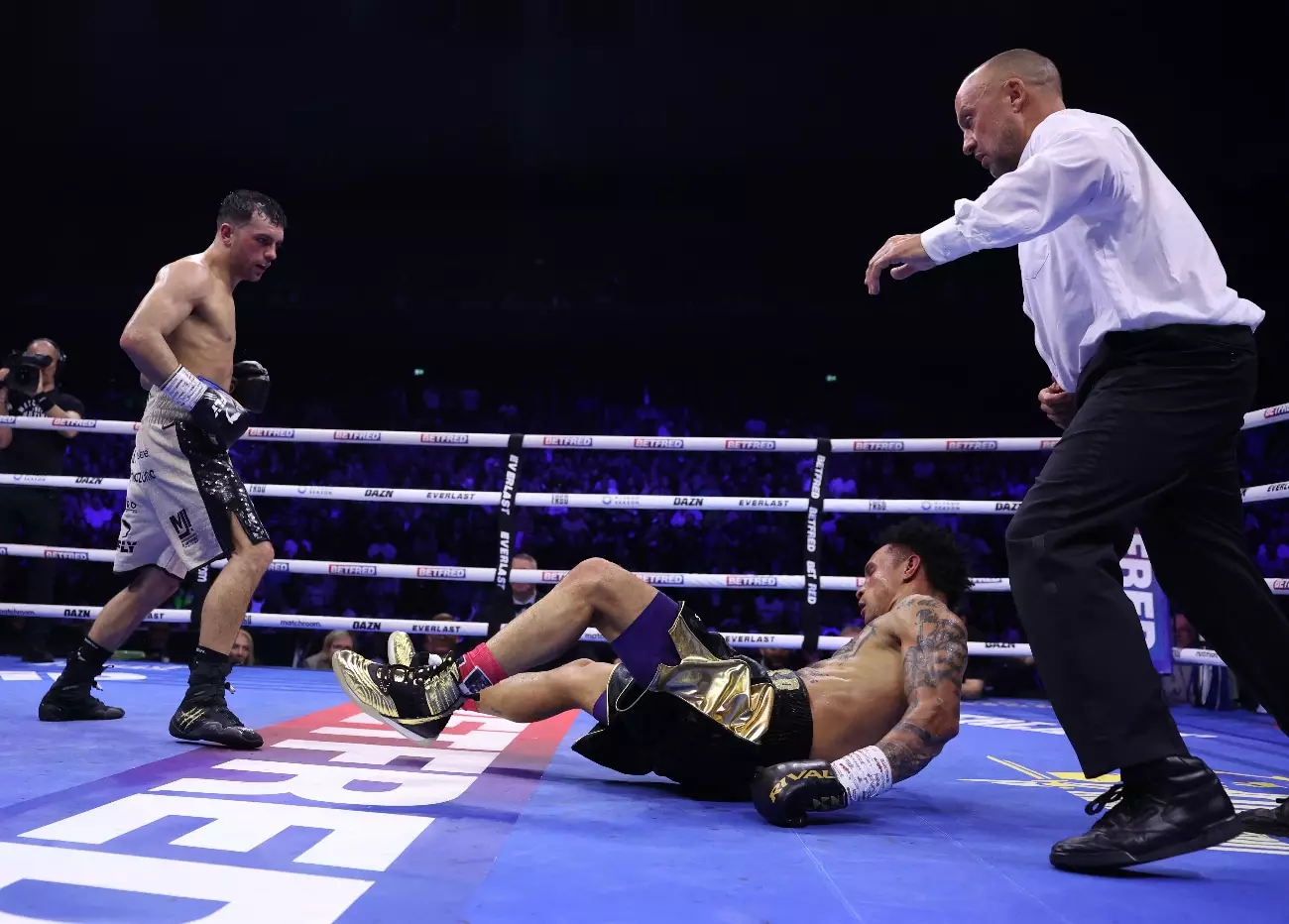In a highly anticipated match, Jack Catterall (30-1, 13 KOs) demonstrated his boxing prowess with a unanimous decision win over Regis Prograis (29-3, 24 KOs) on a Saturday night at the Co-op Live Arena in Manchester, England. The bout proved to be a strategic affair, lacking the action-packed exchanges that usually characterize championship fights. While Catterall’s victory was clear, the path he took to secure it revealed much about the fighters’ respective styles and the limitations of Prograis.
The bout’s most memorable moment occurred in the ninth round when Catterall delivered two thunderous left-hand punches that sent Prograis to the canvas, marking a significant shift in the fight. Until that point, the competition had been tepid, with both men strategically opting to trade more cautiously than aggressively. Aside from a flash knockdown incurred from Prograis in round five due to a jab, fans were left craving a sense of urgency and excitement. The judges’ scorecards reflecting a 117-108 and two 116-109 decisions underscored Catterall’s command of the match, yet raised questions about Prograis’s approach in the subsequent rounds.
Regis Prograis, after suffering the knockdowns in the ninth, became notably hesitant, seemingly paralyzed by the fear of further mistakes. This aversion to engaging Catterall directly showcased Prograis’s inability to adapt; he appeared to struggle against Catterall’s elusive style. Catterall, who exhibited a retreating technique reminiscent of modern boxing’s more elusive fighters, made it challenging for Prograis to land significant punches. Unfortunately for Prograis, his tactics seemed ill-prepared for the mobility exhibited by Catterall, who managed to stay out of harm’s way while scoring points.
The Aftermath: Reflections on Preparedness and Future Directions
It is evident that Catterall’s strategy effectively neutralized Prograis, showcasing a level of ring IQ that outshone his opponent. Catterall himself noted post-fight, “I knew I had to up my game,” highlighting the significance of preparation and adaptability in the ring. For Prograis, however, this loss raises serious questions about his future in boxing. Having faced two consecutive defeats and exhibiting signs of hesitance, the onus now lies on him to evaluate his career trajectory.
Catterall, meanwhile, has positioned himself as a formidable contender for the future, set to face the winner of the upcoming clash between IBF light welterweight champion Liam Paro and Richardson Hitchins. With Hitchins sharing a similar elusive style, the forthcoming bout poses an opportunity for Catterall to further refine his skills against another challenger that may not press the action as needed.
This fight served as a stark reminder of how strategic movement and effective match planning can dictate the outcome in boxing. The contrast between Catterall’s finesse and Prograis’s reluctance painted a clear picture of varied approaches to the sweet science, leaving fans both intrigued and contemplative about the fighters’ futures.


Leave a Reply